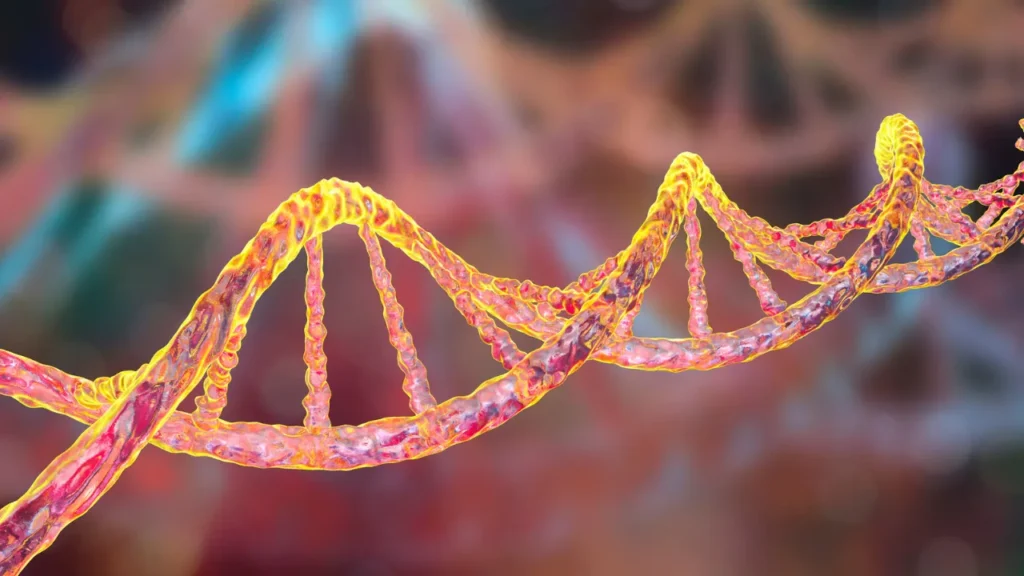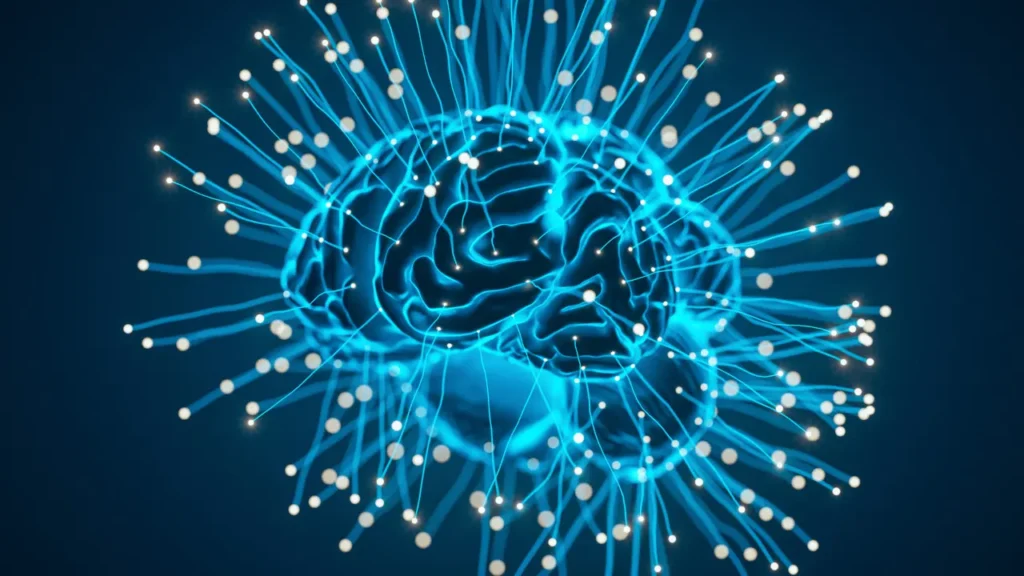The body uses the coenzyme NADH, also known as Nicotinamide Adenine Dinucleotide + Hydrogen in a variety of biochemical processes, such as DNA repair, cellular respiration, and energy metabolism. Due to its potential cognitive advantages, NADH is another nootropic substance that has grown in popularity in recent years. The nature, health advantages, recommended dosage, negative effects, possible drug interactions, and the most responsible way to utilize NADH are going to be covered in-depth in this article for people looking to improve alertness, attention, and cognition.
You May Also Like:
Horbaach Lion’s Mane Mushroom Extract Reviews: A Leading Herbal Nootropic Product
NADH (Nicotinamide Adenine Dinucleotide + Hydrogen): Benefits, Dosage, Side Effects, Drug Interactions, and Other Important Information is an original (NootropicsPlanet) article.
Nature of NADH
NADH is a coenzyme generated from vitamin B3 which is also known as niacin. It is made up of the nucleotides nicotinamide and adenine as well as a hydrogen molecule (H+). By serving as an electron carrier in the electron transport chain, NADH is essential for the cellular energy production process. Additionally, it is involved in the creation of neurotransmitters and other biochemical activities including DNA repair.
Health Benefits of NADH
There have been numerous health advantages associated with NADH. Among the most noteworthy advantages are:
- Higher Energy Levels: ATP, the main source of energy for cells, is produced in part by NADH. It has been demonstrated that taking NADH supplements increases energy and decreases the feeling of weariness.
- Enhanced Cognitive Function: Studies have indicated that NADH enhances cognitive abilities such as memory, focus, and attention. This is attributed to its part in the manufacture of neurotransmitters including serotonin and dopamine.
- Defense Against Oxidative Stress: NADH is a potent antioxidant that aids in preventing oxidative stress in cells. This can lower the risk of developing a variety of chronic illnesses, including cancer, heart disease, and neurological diseases.
- Improved Athletic Performance: It has been demonstrated that NADH enhances athletic performance by boosting energy and lowering weariness. Athletes frequently utilize it to increase endurance and shorten recovery times.

Chemistry of NADH
As mentioned, nicotinamide adenine dinucleotide (NAD+) and hydrogen (H+) are the two nucleotides that make up the coenzyme NADH. All living cells contain the chemical NAD+, which plays a role in the oxidation-reduction processes that take place during cellular respiration. Cellular respiration is a process in which cells turn glucose and other nutrients into energy in the form of ATP.
NAD+ is a dinucleotide, which means that it is made up of two nucleotides connected by phosphate groups. Adenine and nicotinamide are the two nucleotides that make up NAD+. DNA and RNA both contain the purine nucleotide adenine. Vitamin B3 in the form of nicotinamide is essential for numerous bodily metabolic functions.
NAD+ is converted to NADH during cellular respiration by taking two electrons and one hydrogen ion (H+). An enzyme from the dehydrogenases family will catalyze this reaction. The reaction occurs in the electron transport chain, which is a collection of proteins embedded in the inner mitochondrial membrane that receives the electrons and hydrogen ion. As the electrons move through the electron transport chain, a proton gradient is generated that is used to power ATP synthesis.
Physiological Mechanism of Action of NADH on the Body and Brain
Numerous biochemical procedures in the body and brain involve NADH. One of its main roles is to function as an electron carrier in the electron transport chain, which is in charge of ATP synthesis. In addition to being essential for many physiological functions like muscular contraction, nerve impulse transmission, and protein synthesis, ATP is the main form of energy used by cells.
Dopamine and serotonin are two neurotransmitters whose production involves NADH. Dopamine is involved in motivation, reward, and movement, while serotonin affects mood, appetite, and sleep. The synthesis of these neurotransmitters is increased by NADH, which could enhance cognitive abilities like memory, focus, and attention.
Another strong antioxidant that helps shield cells from oxidative damage is NADH. The occurrence of oxidative stress is a result of an imbalance between the generation of reactive oxygen species (ROS) and cellular detoxification capacity. This can potentially harm DNA, proteins, and lipids, among other biological components. NADH may lower the risk of a variety of chronic diseases, such as cancer, cardiovascular disease, and neurological diseases, by functioning as an antioxidant.

Optimal Dosage of NADH
Depending on the intended usage, a different NADH dosage is recommended. A dosage of 5–10 mg per day is suggested for overall health advantages. A dosage of 20–30 mg per day might be more beneficial for improving athletic performance. Higher dosages should not be used without caution as they may raise the risk of negative effects.
Side Effects of NADH
When taken at recommended quantities, NADH is generally regarded as safe. However, some people may suffer negative effects, such as:
1. Nausea: When taken on an empty stomach, NADH can make some people feel sick.
2. Insomnia: For some people, NADH can make it difficult to fall asleep.
3. Headaches: Some people may get headaches as a result of NADH.
4. Diarrhea: When taken in large doses, NADH can lead to diarrhea.
5. Hypertension: When combined with other supplements or drugs that raise blood pressure, NADH has the potential to exacerbate hypertension in certain people.
Potential Substance Interactions with NADH
Certain prescription drugs and dietary supplements, such as:
- Antidepressants: Selected serotonin reuptake inhibitors, in particular, may interact with NADH. (SSRIs). This might result in serotonin syndrome, which includes symptoms like agitation, confusion, and a rapid heartbeat.
- Blood Pressure Drugs: Beta-blockers and calcium channel blockers are blood pressure drugs that may interact with NADH. The risk of hypertension or hypotension may rise as a result.
- Stimulants: NADH and stimulants like caffeine or amphetamines may interact. The likelihood of overstimulation or negative side effects may arise as a result.
- Chemotherapy: NADH may hinder the effects of chemotherapy, particularly when the cancer cells are killed by oxidative stress. As a result, the effect of chemotherapy might decrease.

Best Responsible Use of NADH
It is crucial to adhere to the following rules to guarantee the best responsible use of NADH:
- Speak with a healthcare professional: It’s crucial to speak with a healthcare professional before beginning any new supplement regimen to be sure it’s right for your particular needs.
- Adhere to approved dosages: To prevent potential side effects and interactions, it’s crucial to adhere to recommended dosages.
- Keep an eye out for negative effects: If you suffer any negative effects from taking NADH, such as nausea or headaches, stop using it immediately and talk to your doctor.
- Watch out for possible interactions: If you use any vitamins or drugs, watch out for possible NADH interactions.
- Use in conjunction with other healthy lifestyle habits: NADH is not a replacement for a healthy lifestyle. Regular exercise, a nutritious diet, and enough sleep are all essential for maintaining good health and cognitive function.
NADH (Nicotinamide Adenine Dinucleotide + Hydrogen):
Conclusion
All in all, NADH also known as Nicotinamide Adenine Dinucleotide + Hydrogen is a coenzyme that is used in the body. This compound is most widely known for its involvement in cellular respiration. NADH contributes to the donation of electrons and hydrogen ions which generates the proton gradient across the electron transport chain. By using NADH as a supplement, you may enjoy higher energy levels, improved athletic performances, and better cognitive function.
Recent studies of NADH have also shown that NADH is a strong antioxidant that helps shield cells from oxidative damage. However, it is also crucial to note that NADH may cause some side effects such as nausea, insomnia, headaches, diarrhea, etc. You would also have to look into your existing medical prescriptions to ensure that none of the mechanisms of these drugs clash with NADH supplementation. To be safe, it is highly recommended that you ask for your doctor’s opinion before starting NADH supplementation.

References:
- Forsyth, L. M., Preuss, H. G., MacDowell, A. L., Chiazze, L., Birkmayer, G. D., & Bellanti, J. A. (1999). Therapeutic effects of oral NADH on the symptoms of patients with chronic fatigue syndrome. Retrieved from: Annals of Allergy, Asthma, & Immunology, 82(2), 185–191.
- Gindri, I. M., Ferrari, G., Pinto, L. R. C., Bicca, J. M., Santos, I., Dallacosta, D., & De Mello Roesler, C. R. (2024). Evaluation of safety and effectiveness of NAD in different clinical conditions: a systematic review. Endocrinology and Metabolism/American Journal of Physiology: Retrieved from: Endocrinology and Metabolism, 326(4), E417–E427.
- Braidy, N., & Liu, Y. (2020). NAD+ therapy in age-related degenerative disorders: A benefit/risk analysis. Retrieved from: Experimental Gerontology, 132, 110831.
Important Note: The information contained in this article is for general informational purposes only, and should not be construed as health or medical advice, nor is it intended to diagnose, prevent, treat, or cure any disease or health condition. Before embarking on any diet, fitness regimen, or program of nutritional supplementation, it is advisable to consult your healthcare professional in order to determine its safety and probable efficacy in terms of your individual state of health.
Regarding Nutritional Supplements Or Other Non-Prescription Health Products: If any nutritional supplements or other non-prescription health products are mentioned in the foregoing article, any claims or statements made about them have not been evaluated by the U.S. Food and Drug Administration, and such nutritional supplements or other health products are not intended to diagnose, treat, cure, or prevent any disease.


